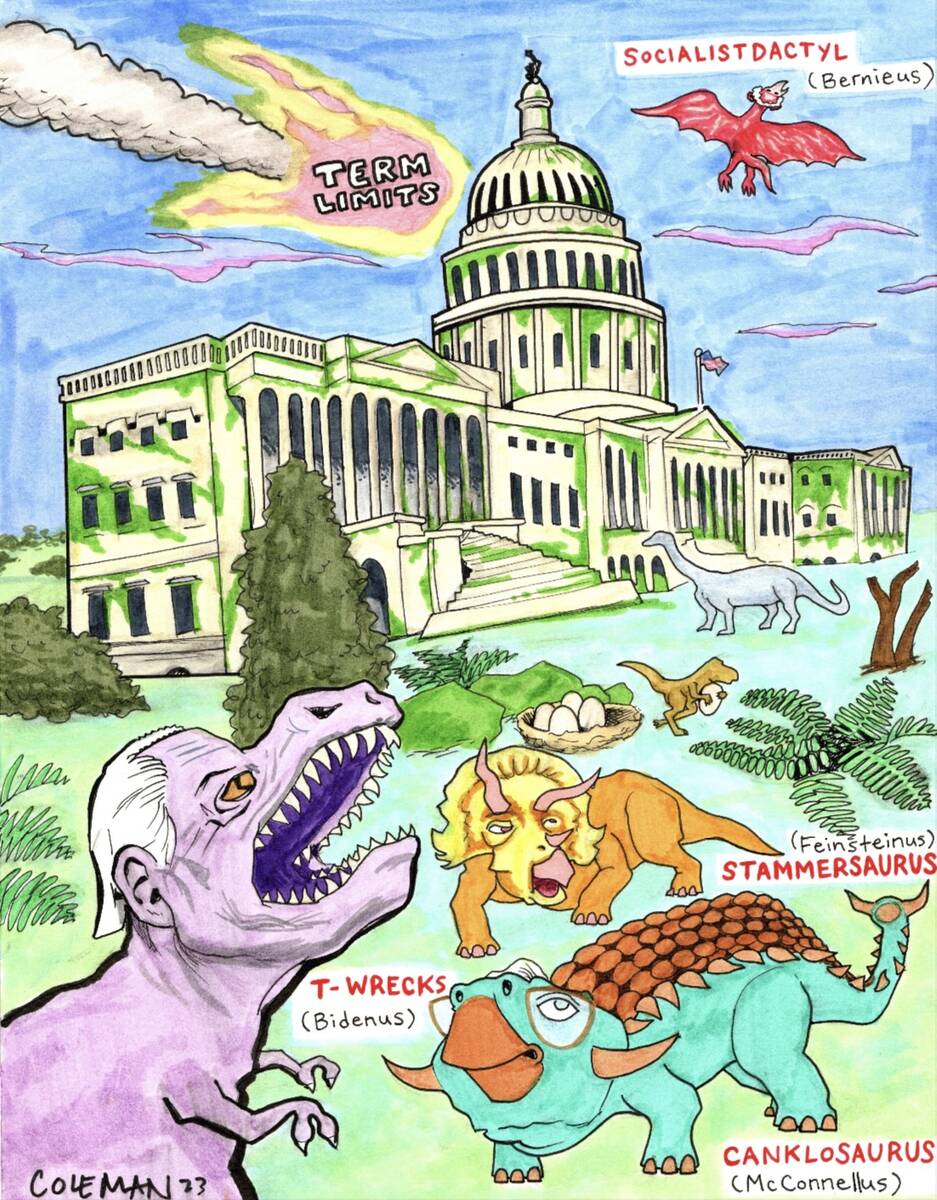EDITORIAL: Term limits on Washington make sense
In 1995, the U.S. Supreme Court ruled 5-4 that states could not impose congressional term limits — it would take a constitutional amendment to accomplish the objective. Nearly 30 years later, it may be time to embark down such a path.
The high court decision invalidated provisions in 23 states — including Nevada — in which voters had approved limitations on how long their senators and representatives could serve in Congress. Term limits had become popular in the early 1990s and were included in the GOP’s 1994 Contract with America, which helped Republicans gain control of the House of Representatives for the first time in 40 years.
Currently, 16 states — including Nevada — limit how long their state lawmakers may serve. Such restrictions were approved in those states with an average of 66 percent voter support.
Despite the popularity of the concept, proposals to limit congressional terms have languished — largely because such an amendment would require the consent of the very politicians who would suffer the consequences. Yet the nation’s growing polarization and its aging political class could provide impetus to again jump-start a federal term limits movement.
President Joe Biden will be in his late 80s if he is re-elected — and his physical and cognitive decline are obvious. He has been entrenched in Washington for 50 years. Late last month, Sen. Dianne Feinstein, a 90-year-old California Democrat who has served in the upper chamber for three decades, appeared confused at a Senate committee hearing and had to be told how to vote. That same week, Senate Minority Leader Mitch McConnell, 81, froze up while talking to reporters, leading to speculation that he may have had a mini-stroke.
At the same time, too many members of Congress prioritize re-election ahead of addressing the nation’s business. The national debt has skyrocketed past $32 trillion largely because elected officials on both sides of the aisle are terrified of angering special-interest groups by taking the steps necessary to reverse that dangerous trend. Entitlement spending is on an unsustainable path, but nobody dare suggest reforms for fear of being caricatured by their political opponents as granny haters looking to force the elderly onto a diet of Alpo.
“Elected office should represent a short-term privilege of public service, not a career choice,” said Rep. Ralph Norman, R-S.C., who, with Sen. Ted Cruz, R-Texas, introduced an amendment this year to limit terms for federal offices. “Those of us in Congress ought to serve for a reasonable period of time and then return home to live under the laws we enacted.”
The Cruz-Norman plan would limit senators to two six-year terms and confine House members to three two-year stints.
Opponents of term limits argue they restrict voter choice and rob the system of valuable institutional knowledge. There is some truth to this. Yet it’s worth noting that the most vociferous opponents of term limits include self-interested politicians themselves and the lobbyists who have spent years cultivating access to long-term incumbents. As for voter choice, many of those espousing this argument also support laws that make it more difficult for third-party candidates to appear on the ballot.
Term limits aren’t a magic bullet. But they will ensure a healthy turnover in the nation’s political class while potentially encouraging new ideas and spurring elected officials to focus more on the nation’s business than on fundraising for the next election. The republic has survived presidential term limits for more than 70 years without incident. According to a U.S. Term Limits, a 2021 poll on the subject found that 80 percent of respondents favored restricting how long members of Congress may serve. Voters who want such a change should pressure their congressional representatives to get on board the Cruz-Norman amendment.
This commentary was originally published in the Las Vegas Review-Journal.













